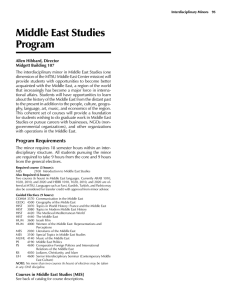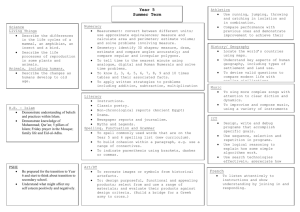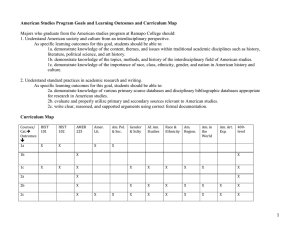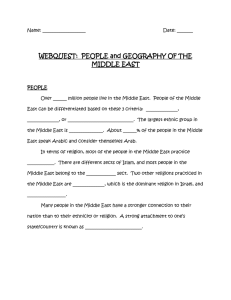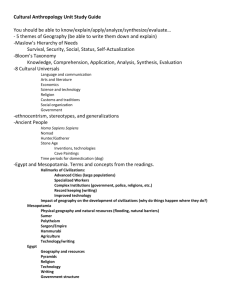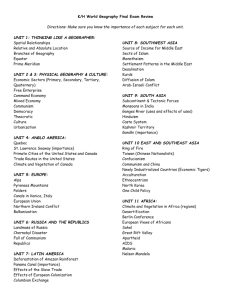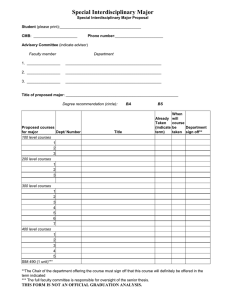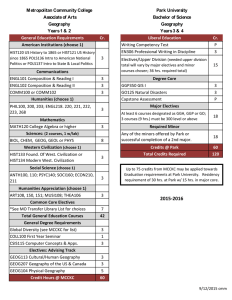Middle East Studies Program
advertisement
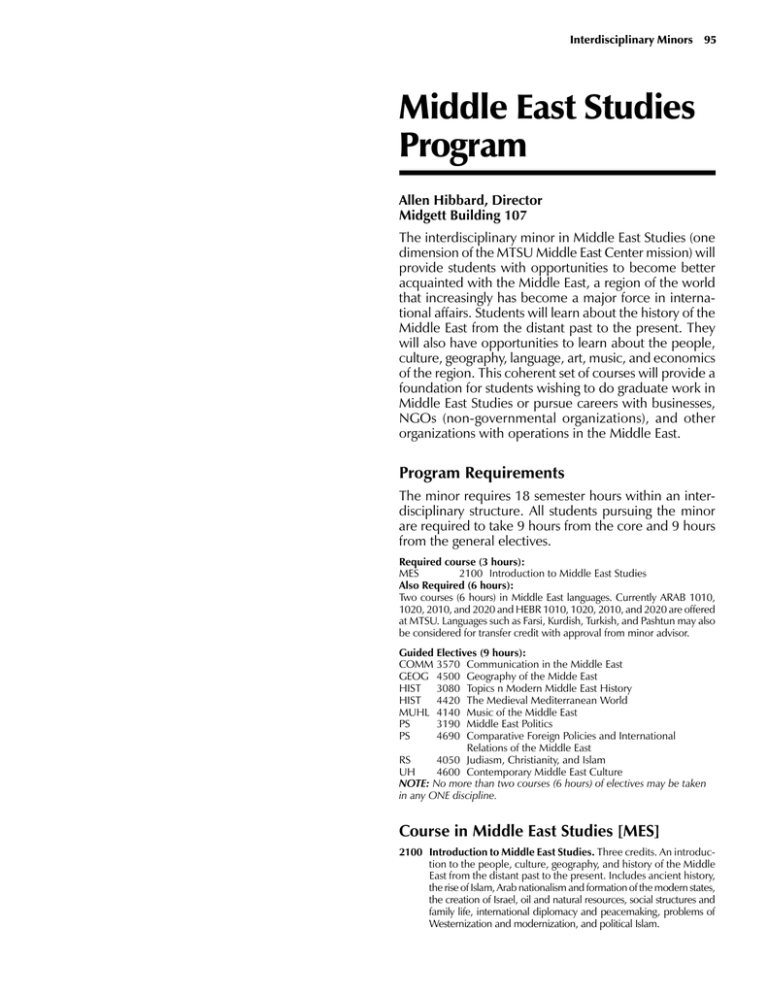
Interdisciplinary Minors 95 Middle East Studies Program Allen Hibbard, Director Midgett Building 107 The interdisciplinary minor in Middle East Studies (one dimension of the MTSU Middle East Center mission) will provide students with opportunities to become better acquainted with the Middle East, a region of the world that increasingly has become a major force in international affairs. Students will learn about the history of the Middle East from the distant past to the present. They will also have opportunities to learn about the people, culture, geography, language, art, music, and economics of the region. This coherent set of courses will provide a foundation for students wishing to do graduate work in Middle East Studies or pursue careers with businesses, NGOs (non-governmental organizations), and other organizations with operations in the Middle East. Program Requirements The minor requires 18 semester hours within an interdisciplinary structure. All students pursuing the minor are required to take 9 hours from the core and 9 hours from the general electives. Required course (3 hours): MES 2100 Introduction to Middle East Studies Also Required (6 hours): Two courses (6 hours) in Middle East languages. Currently ARAB 1010, 1020, 2010, and 2020 and HEBR 1010, 1020, 2010, and 2020 are offered at MTSU. Languages such as Farsi, Kurdish, Turkish, and Pashtun may also be considered for transfer credit with approval from minor advisor. Guided Electives (9 hours): COMM3570 Communication in the Middle East GEOG 4500 Geography of the Midde East HIST 3080 Topics n Modern Middle East History HIST 4420 The Medieval Mediterranean World MUHL 4140 Music of the Middle East PS 3190 Middle East Politics PS 4690 Comparative Foreign Policies and International Relations of the Middle East RS 4050 Judiasm, Christianity, and Islam UH 4600 Contemporary Middle East Culture NOTE: No more than two courses (6 hours) of electives may be taken in any ONE discipline. Course in Middle East Studies [MES] 2100 Introduction to Middle East Studies. Three credits. An introduction to the people, culture, geography, and history of the Middle East from the distant past to the present. Includes ancient history, the rise of Islam, Arab nationalism and formation of the modern states, the creation of Israel, oil and natural resources, social structures and family life, international diplomacy and peacemaking, problems of Westernization and modernization, and political Islam.
